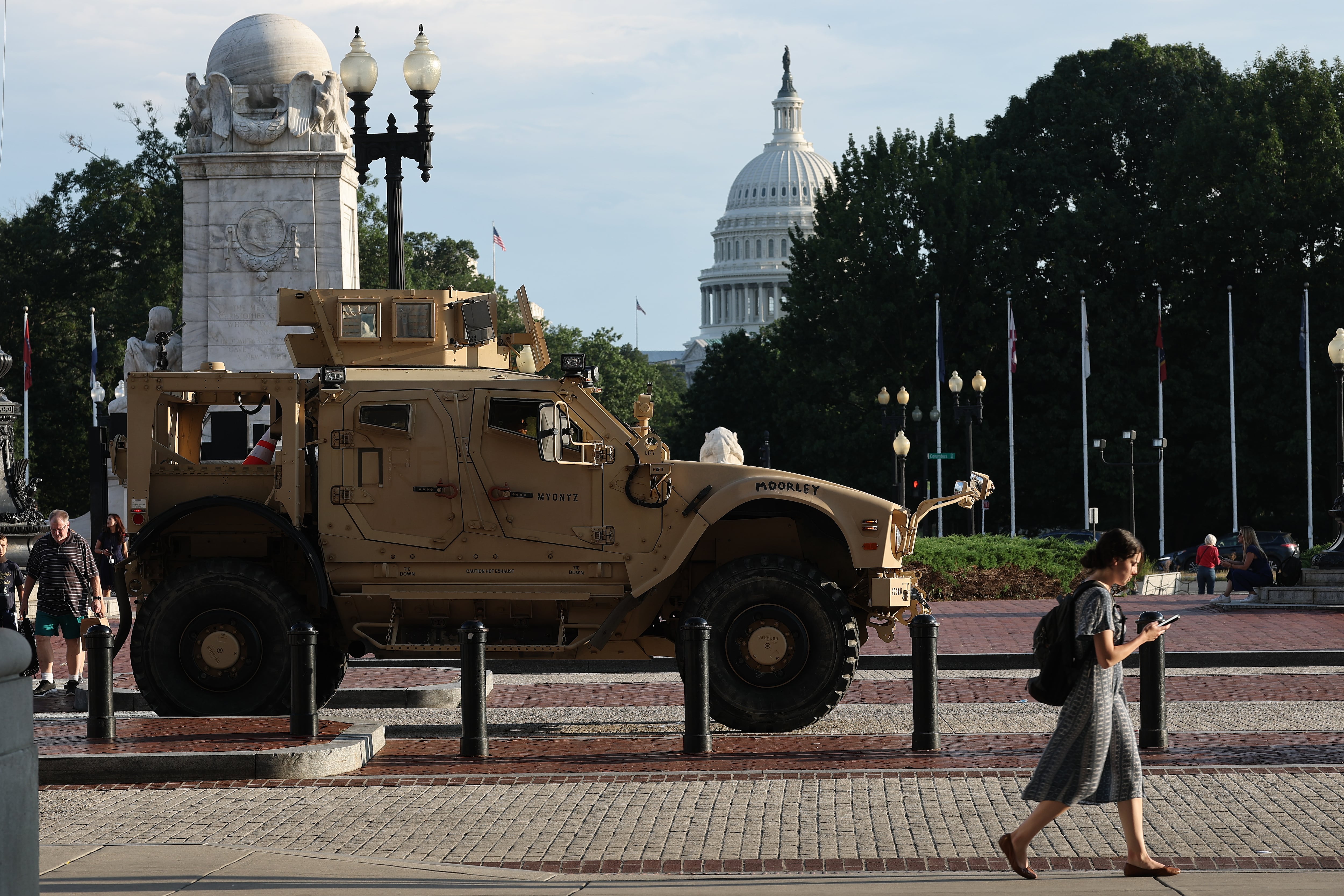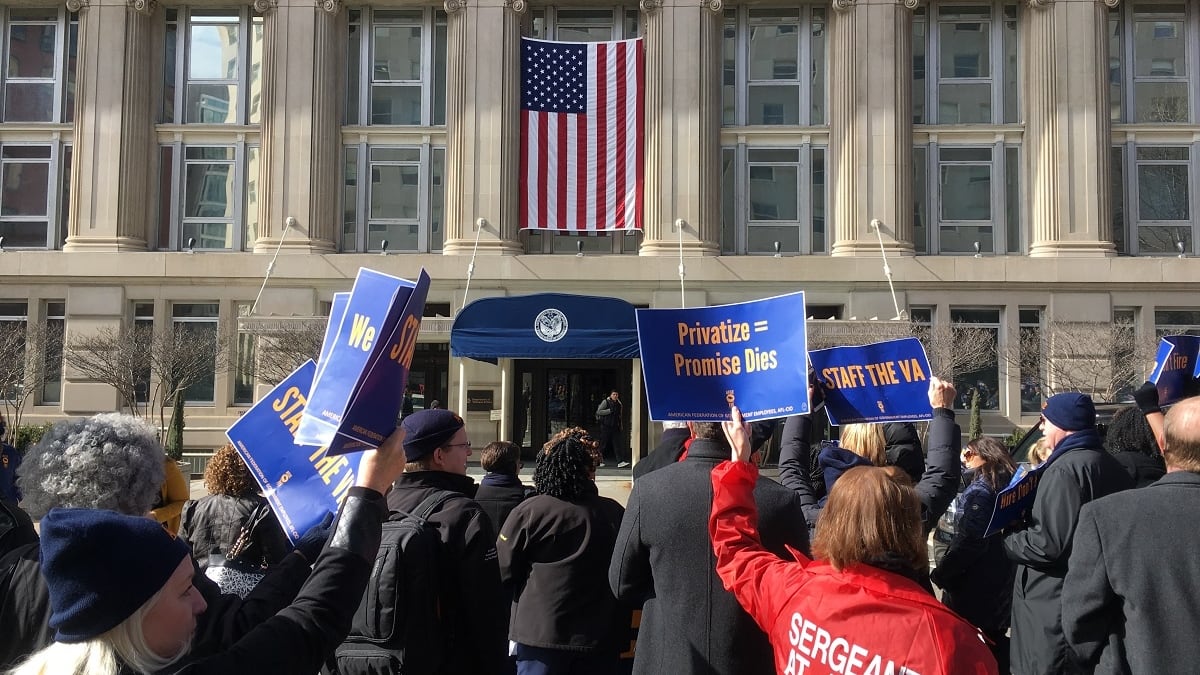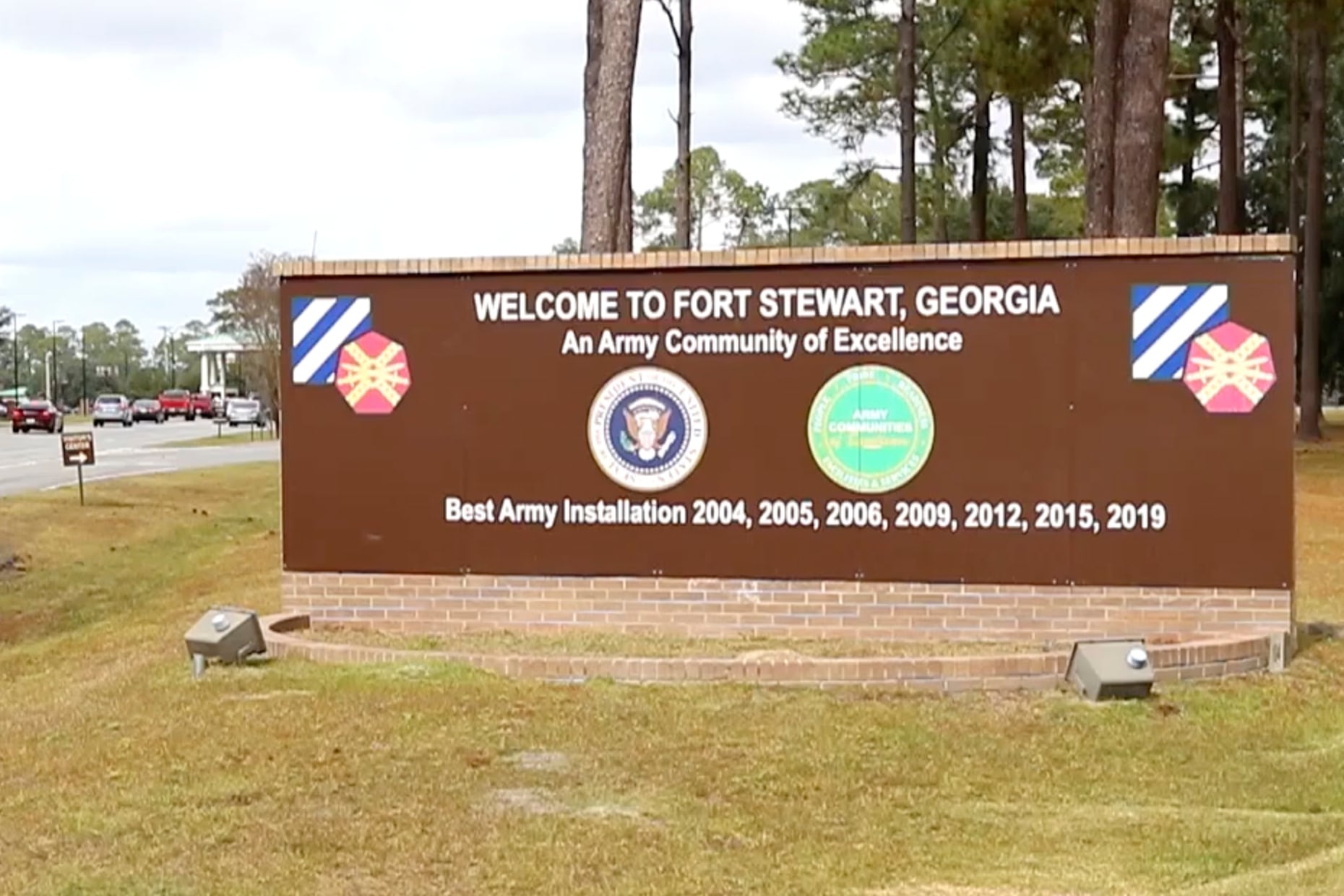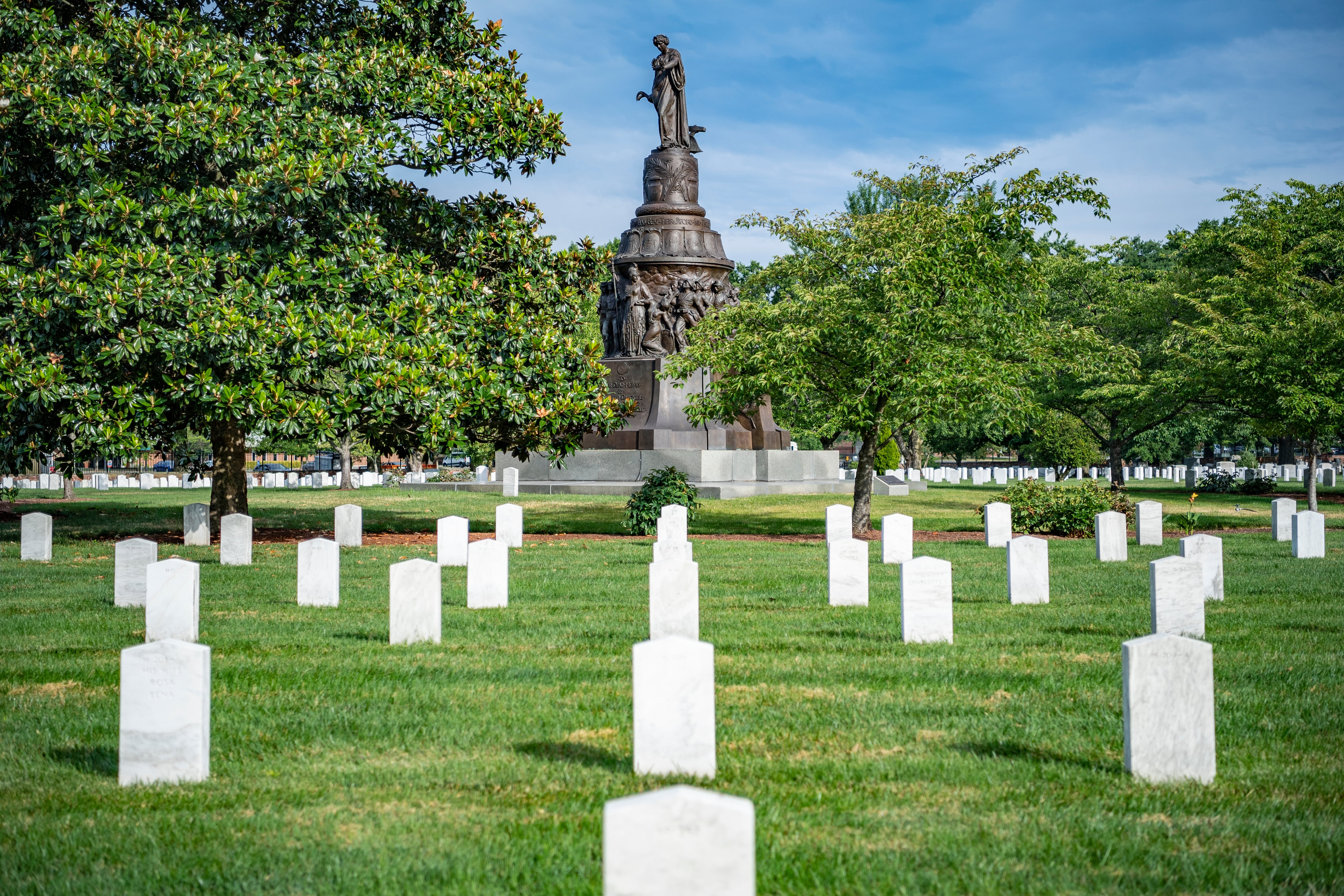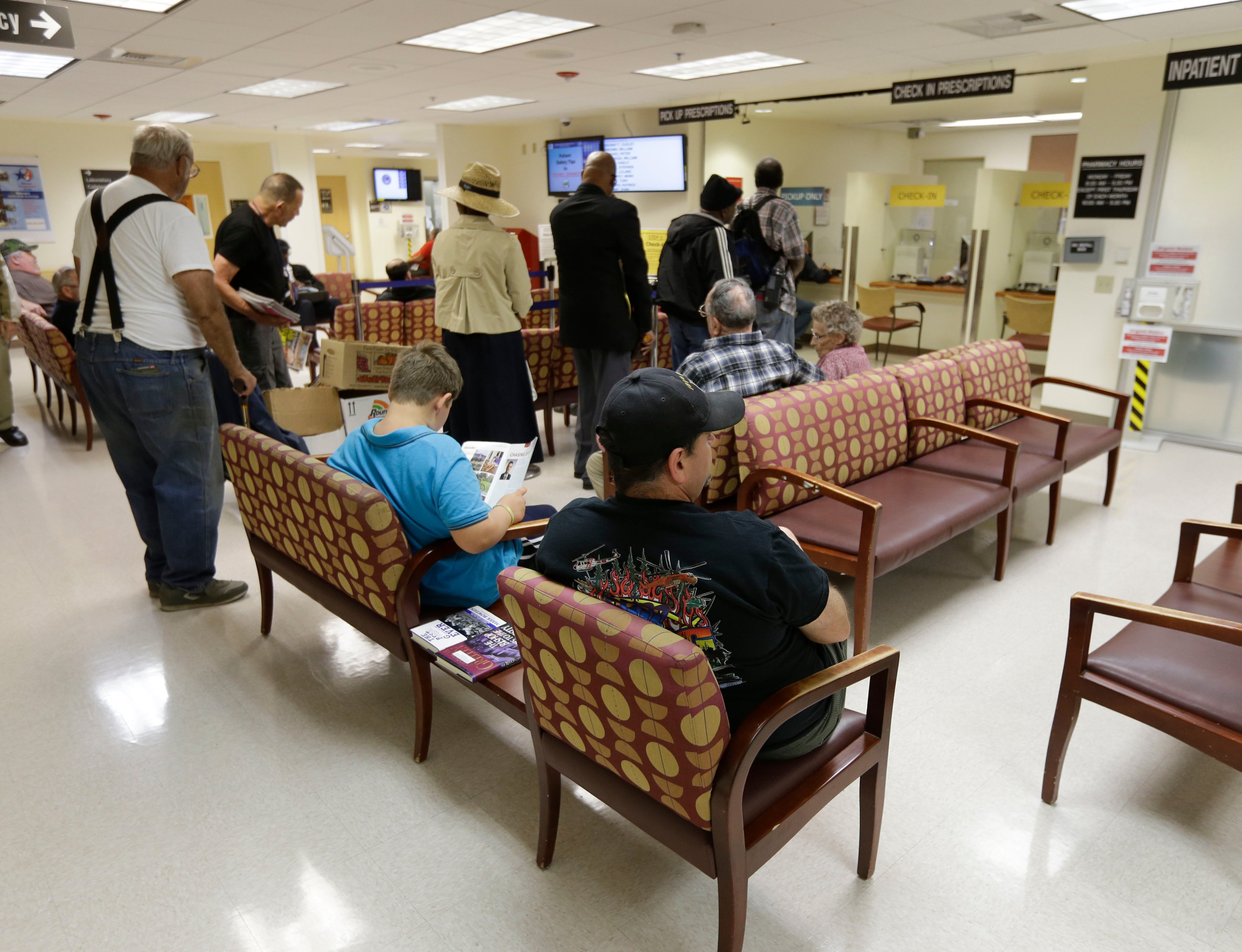Troops from the Marine Corps' Spain-based crisis response force for Africa will be visiting the continent a lot more regularly often since the service , thanks to efforts to developed and cultivate three new forward staging locations for use in emergencies.
Located in Gabon, Senegal and Ghana, these three cooperative security locations will be visited by detachments from Special Purpose Marine Air-Ground Task Force–Crisis Response–Africa every six months in order to build relationships with local troops and leaders and keep the bases ready for use, said task force commander Col. Thomas Savage, the unit's commanding officer. While in the three countries, all of which are along Africa's western coast, the Marines will in order to build relationships with local troops and leaders and keep the bases ready for use, Savage said.
The Marine Corps has ve also made agreements with leaders in of the central-west nation of Niger to develop another cooperative security location in the West African country, said 1st Lt. Danielle Dixon, a spokeswoman for the task force. according to Marines with the task force, bBut they task force officials said, but have not established or validated a viable location for use in a crisis, she added. Dixon said U.S. Africa Command will make future announcements about new cooperative security locations there and elsewhere as they come online.
These cooperative security locations, or CSLs, will help the Marines avoid lengthy trips from Europe to respond to crises across the vast African continent. In 2014, for example, Marines with the Morón, Spain-based unit flew 4,200 miles to evacuate the U.S. Embassy in South Sudan amid civil unrest there.
Established for use by the Marine Corps last year, the CSLs consist of little more than an austere fenced-in space the size of a football field, Savage told Marine Corps Times in an interview at his unit's from the task force's headquarters in Spain. But in a crisis such as an U.S. embassy reinforcement or humanitarian intervention, the locations can be readied within hours to host nearly 200 troops for as long as they need to stay.
Marines tested the The CSLs in Ghana and Gabon for the first time underwent their first dry runs earlier this year, Savage said. Teams of crisis response SP-MAGTF Marines converged on Ghana for a little more than four weeks in March and just recently returned from a three-week test in at "exercise" of the Gabon location in June.
In each case, he said, an advance team of five to 10 ten Marines would arrived early to arrange diplomatic permissions, secure contracts for food and other services, make contact with the local embassy and turn the sparse locations into fully functioning forward bases.
"It's kind of like a [Fforward Ooperating Bbase] without getting shot at," Savage said. "We brought porta-johns, we even brought washers and dryers, power generators ... then we're operational."
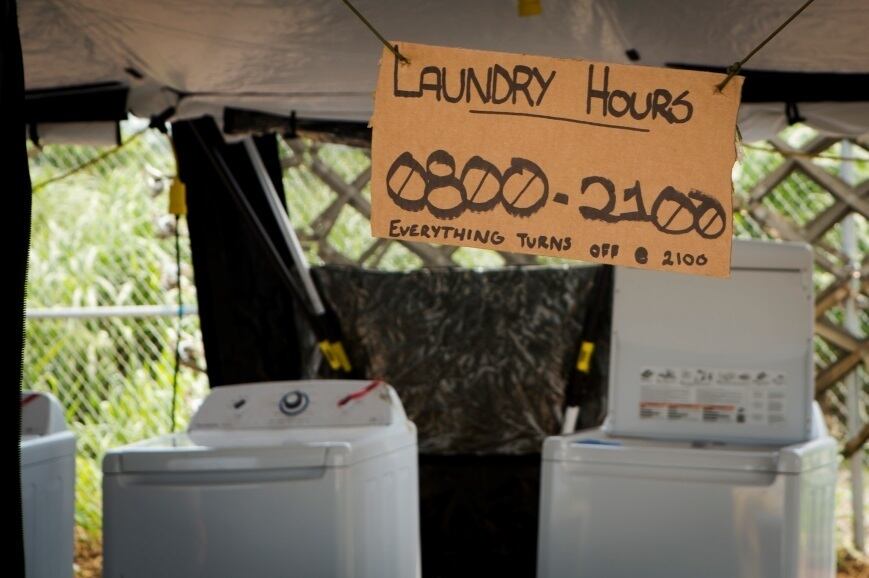
A cardboard sign indicates the hours of operation for the laundry facility at a Marine Corps cooperative security location in Gabon.
Photo Credit: Lance Cpl. Christopher Mendoza/Marine Corps
In terms of equipment, Savage said the Marines kept their footprint small. The task force sent 186 troops to Gabon with four MV-22B Ospreys and two 2 KC-130J Hercules jets, but brought no vehicles.
Though Savage said most State Department-directed missions that would require Marines to forward-position task force Marines at a CSL would run about 30 days, the only real challenge to keeping the troops there longer is tied to aircraft maintenance.
"It's very difficult to keep your aircraft in peak condition when you can't bring them out and take them apart," said Savage, adding that limited space and resources made repairs and maintenance a challenge. Ultimately, the host nations and U.S. Embassy determine the length of stay.
During the visit to Gabon, the 186 task force Marines toured the U.S. Embassy in Libreville, the country's capital, to build familiarity with the layout and meet embassy staff members. They also trained with about 60 Gabonese troops, holding courses in non-lethal weapons employment and generator maintenance and logistics, and an enlisted-to-officer transition program.
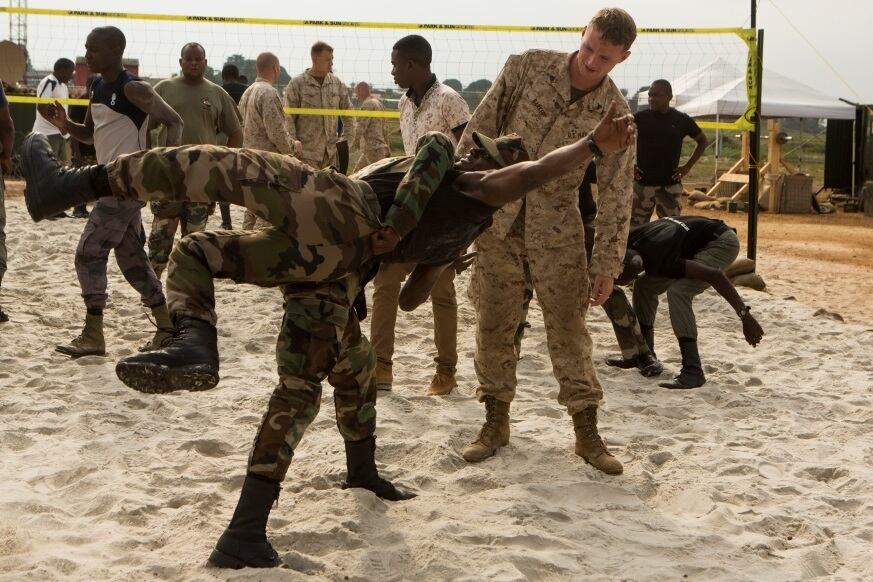
Gabonese troops demonstrate non-lethal takedown techniques at a cooperative security location established by Special-Purpose Marine Air-Ground Task Force Crisis Response-Africa in Gabon. The Marines trained with the local troops while testing its ability to respond to crises in the region from the new forward staging base.
Photo Credit: Lance Cpl. Christopher Mendoza/Marine Corps
Meanwhile, Savage and other task force leaders were building friendships with Gabonese military leadership, even offering them Osprey rides. While the three CSLs the Marines are using were chosen because of the strong relationship the U.S. maintains with each country, Savage said the reception in Gabon was especially warm.
"Those guys were man-hugging you and trading coins," he said.
As the Marines return periodically to the new staging locations, Savage said they will task force plans to develop a playbook for making the area operational. of sorts for each country to codify the process of setting up the CSLs. The playbooks will also document what bilateral training has already been conducted with local partner nation troops, so new Marine teams can pick up where the last one left off that the task force can develop increasingly advanced challenges for each visit.
Marines from SPMAGTF–Crisis Response–Africa The task force will visit Senegal for a dry run in that location when the next unit rotation, led by 6th Marines, takes over next month, Savage said.

